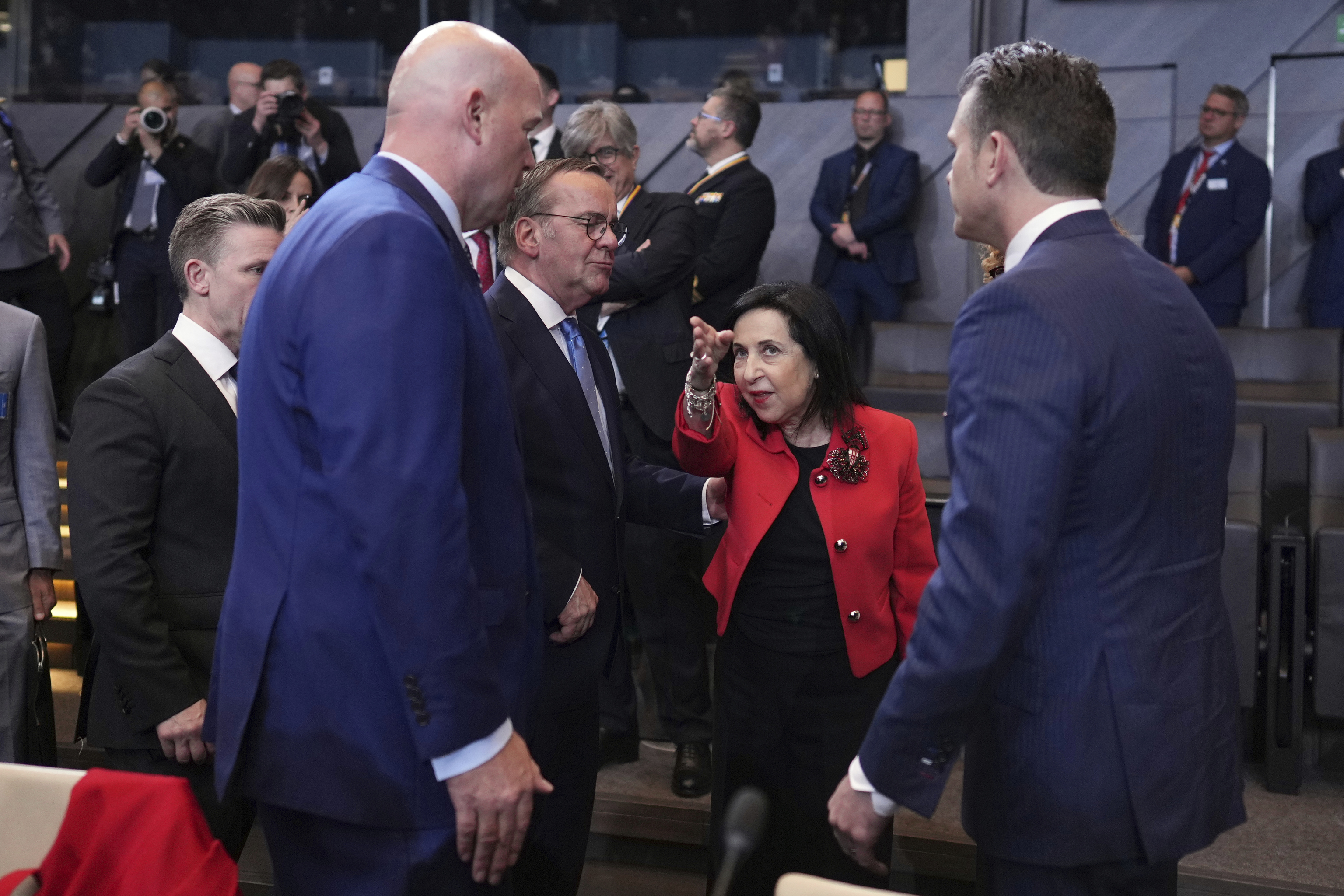Spain's firm refusal to invest more than 2% of GDP in Defense has unleashed "discomfort" and "frustration" among NATO allies, especially those more committed to European Defense. "Dragging his feet on military spending," explain sources from these countries in a quite descriptive way.
Within the Alliance, diplomatic sources from up to three nations continue, they are aware that Spain's view of the threat posed by Russia is very different from that of countries further east, closer to the border. It is logical, "some see Vladimir Putin's ghost fleets with their own eyes" while others only read, hear, or see these news. And to a certain extent, the difficulties that the Spanish Government may have in significantly increasing military spending are understood.
In fact, there are more allies in a similar situation, and within the North Atlantic Treaty Organization, there is full awareness of this. "There is understanding," these same sources summarize. But what is not understood is the categorical refusal to invest more than 2% in Defense when, furthermore, the Secretary-General of NATO, Mark Rutte, had already hinted at proposing a 5% investment target, which he confirmed yesterday. It will be under the 3.5%+1.5% formula as reported by this newspaper: the first part destined for "pure defense expenses based on overall costs to achieve new capacity objectives," and the second for "investments related to defense and security, such as infrastructure and industry," explained the former Prime Minister of the Netherlands.
"We live in a different, more dangerous world. If we don't do this, we won't be safe," Rutte added after the Defense Ministers' meeting held this Thursday in Brussels. The last one before the crucial summit that will take place on June 24 and 25 in The Hague. "In all these areas, we need considerable investments. This is true for all allies, from Greece, Portugal, and Spain, to the Baltics, Finland, and of course, Canada and the United States," he continued, directly citing the Spanish country.
This was not the only occurrence within the framework of this meeting because on Wednesday, the US Ambassador to the Alliance, Matthew Whitaker, stated that his country's demand to reach 5% would apply to all countries. "We are working with all our allies to agree on this defense commitment in The Hague, including our friends from Spain," he responded when asked about the Spanish position. And yesterday, the Pentagon chief, Pete Hegseth, also indirectly referred to Spain by pointing out the countries that are far from the level demanded by the Trump Administration. "I'm not going to name names," because "we are among friends in that room," he said. "But we will convince them, and in a matter of weeks, this alliance will commit to 5%", added the Defense Secretary.
All of this contrasts significantly with the position of the Pedro Sánchez Government. A sort of rebellion that is even less understood when much of NATO is about theatricalizing, negotiating medium-term objectives that will be seen how they will be fulfilled, and above all, convincing the United States to remain committed to the defense of Europe. Or perhaps it is precisely because of this. In any case, Italy has a very complicated financial situation, with runaway public debt, and will have great difficulties in reaching 5%. The same objective will entail a huge expense for Germany given its substantial GDP, and France's position is not much easier. But none of them has stood out as much as Spain in its rejection nor has been as marked as a result.
"We understand that Spain, if it fulfills the 2% commitment, which we will undoubtedly fulfill this year, we will assume our commitments, our capacity objectives that have been attributed to us by the Atlantic Alliance," stated the Defense Minister, Margarita Robles, to make Spain's position clear. "The plan we have approved and that allows us to reach 2% of GDP will allow us to increase the capabilities required by the Atlantic Alliance," she emphasized, which not only annoys NATO but is also directly contrary to what Rutte pointed out. Spain's position is very delicate and, beyond the internal problems of the Government and the parliamentary weakness in which it finds itself, the reality is that it is increasingly moving away from the path followed by the European Union and NATO.
